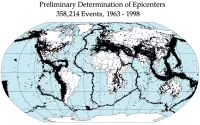Indonesia is a Southeast Asian and Oceanian country, the world's largest archipelago with over 17,000 islands. Spanning 1,904,569 square kilometers, it's the 14th-largest country by area and the fourth-most-populous globally, with over 280 million people. It is the most populous Muslim-majority nation. Java, the most populous island on Earth, holds over half of Indonesia's population.
1900: Indonesia gains recognition
After 1900, the term 'Indonesia' became more common in academic circles outside the Netherlands.
1913: First Native Scholar uses Indonesia
In 1913, Ki Hajar Dewantara became the first native scholar to use the name Indonesia. He also established a press bureau in the Netherlands, Indonesisch Pers-bureau.
1930: Dutch Population
In 1930, the Dutch and other European-descended populations in Indonesia numbered only around 200,000.
August 1945: Proclamation of Indonesian Independence
In August 1945, just two days after Japan's surrender, Sukarno and Mohammad Hatta issued the Proclamation of Indonesian Independence, becoming the country's first president and vice-president.
1945: Number of Provinces
In 1945, Indonesia had 8 provinces.
1945: Official Status of Bahasa Indonesia
In 1945, following independence, Indonesian gained official status under the name Bahasa Indonesia.
1948: "Bebas Aktif" Foreign Policy
In 1948, Mohammad Hatta coined the term "independent and active" (bebas aktif) to describe Indonesia's foreign policy.
1949: Dutch Recognition of Indonesian Independence
In 1949, the Dutch recognised Indonesian independence at the Dutch–Indonesian Round Table Conference, following international pressure and the Indonesian war of independence.
1949: Garuda Indonesia as national flag carrier
Since 1949, Garuda Indonesia has been the national flag carrier.
1950: Membership in the United Nations
In 1950, Indonesia became a member of the United Nations.
1950: Forest Cover
In 1950, Indonesia's forest cover was at 87%.
1955: First General Election
In 1955, the first general election was held to elect members of the DPR and the Constitutional Assembly (Konstituante).
1957: Deployment to UN peacekeeping missions
Since 1957, Indonesia has been deploying military and police personnel to United Nations peacekeeping missions.
1961: First post-colonial census
In 1961, Indonesia's first post-colonial census recorded a population of 97 million.
1962: Start of Papua conflict
Since 1962, Indonesia has been engaged in the ongoing Papua conflict.
1965: Attempted Coup and Anti-Communist Purge
In 1965, an attempted coup led to a violent anti-communist purge led by the Army's Major General Suharto, resulting in at least 500,000 deaths and the imprisonment of around a million people.
1968: Suharto Becomes President
In 1968, Suharto became President and established a US-backed "New Order" administration, which fostered foreign direct investment and drove three decades of economic growth.
1971: Ramsar Convention
Indonesia has five wetlands of international importance under the 1971 Ramsar Convention.
1972: Volcanic Eruptions in Java
Between 1972 and 1991, Java experienced a total of 29 volcanic eruptions.
1975: Indonesia's Invasion of East Timor
In 1975, Indonesia invaded East Timor, beginning a 24-year occupation.
1976: Launch of first satellite
In 1976, Indonesia launched its first satellite, Palapa, with assistance from the United States, making it the first developing country with a satellite system.
1991: Volcanic Eruptions in Java
Between 1972 and 1991, Java experienced a total of 29 volcanic eruptions.
1997: Asian Financial Crisis
In 1997, Indonesia was the country worst affected by the Asian financial crisis, which brought widespread discontent with the New Order and ultimately ended Suharto's rule.
1998: Fall of the New Order
Following the fall of the New Order in 1998, sweeping amendments to the Constitution of Indonesia restructured the state's executive, legislative, and judicial branches.
1998: Anti-Chinese riots
In 1998, Indonesia experienced anti-Chinese riots, highlighting a history of racial discrimination and conflict.
1998: Political Reforms
In 1998, political reforms in Indonesia removed the TNI's formal legislative role.
1998: Democracy Strengthened
Since 1998, Indonesia has strengthened democracy by granting regional autonomy.
1998: Reforms to the DPR's Governance
Since 1998, reforms have significantly enhanced the DPR's governance functionality.
1999: East Timor Secession
In 1999, East Timor seceded after a controversial 24-year occupation.
1999: Economic Growth
In 1999, Indonesia's GDP grew by only 0.8% during the Asian economic crisis.
1999: Multi-Party System
Since 1999, Indonesia has operated under a multi-party system.
1999: Regional Autonomy
Since the start of regional autonomy implementation in 1999, regencies and cities have become key administrative units responsible for most government services.
2004: First Direct Presidential Election
At the national level, Indonesians did not elect a President until 2004.
2004: Indian Ocean Earthquake
In 2004, the Indian Ocean earthquake caused catastrophic disasters due to seismic activity.
2004: Steady economic recovery
Since 2004, Indonesia's economy has experienced steady recovery with growth rates between 4% and 6%.
2005: Political Settlement in Aceh
In 2005, a political settlement to a separatist insurgency in Aceh was achieved.
2005: End of Aceh separatist movement
In 2005, the separatist movement in Aceh ended peacefully.
2007: Strong Economic Performance
Since 2007, Indonesia's economy has performed strongly, although corruption remains a chronic issue.
2008: Indonesia weathered financial crisis
In 2008, Indonesia weathered the global financial crisis, supported by strong domestic consumption.
2009: Susilo Bambang Yudhoyono's Initiative
Under former President Susilo Bambang Yudhoyono's 2009 initiative, previous targets included reaching 20 million hectares of marine protected areas by 2020.
2010: Population growth between 2010 and 2020
Between 2010 and 2020, Indonesia's population grew at a rate of 1.25%.
2012: Marine Protected Areas
As of 2012, Indonesia has over 100 marine protected areas spanning 15.7 million hectares.
2013: Constitutional Court Ruling
In 2013, the Constitutional Court ruled that legislative and presidential elections would be held simultaneously, starting in 2019.
2015: Local Elections
Beginning with the 2015 local elections, elections for governors and mayors have occurred on the same date.
2018: Sulawesi Earthquake
In 2018, the Sulawesi earthquake caused catastrophic disasters due to seismic activity.
2019: Simultaneous Elections
In 2013, the Constitutional Court ruled that legislative and presidential elections would be held simultaneously, starting in 2019.
2019: Establishment of foreign aid agency
In 2019, Indonesia established its own foreign aid agency, shifting from being primarily a recipient to a provider of aid.
2020: Indonesia's population
According to the 2020 census, Indonesia had a population of 270.2 million, making it the world's fourth most populous country.
2020: Government spending on research and development
In 2020, government spending on research and development in Indonesia was relatively low at 0.28% of GDP.
2020: Previous Marine Protected Area Target
Previous targets included reaching 20 million hectares of marine protected areas by 2020 under former President Susilo Bambang Yudhoyono's 2009 initiative.
2021: Employment Sectors
In 2021, services dominated the Indonesian economy in terms of employment (49.2%), followed by agriculture (28.9%) and industry (21.7%).
2022: Road Network Span
As of 2022, Indonesia's road network spanned 548,097 kilometers.
2022: Kunming-Montreal Global Biodiversity Framework
In 2022, Indonesia aims to align its strategy with the Kunming-Montreal Global Biodiversity Framework.
2022: Total installed power generation capacity
In 2022, Indonesia's total installed power generation capacity was approximately 83.8 gigawatts.
2022: New Province
In 2022, Southwest Papua was established, bringing the total number of provinces to 38.
2023: Muslim Population
As of 2023, 87.1% of the population (244 million Indonesians) are Muslims.
2023: Protected Land Area
As of 2023, Indonesia has designated 21.3% of its land as protected areas.
2023: Inauguration of high-speed rail
In 2023, Indonesia inaugurated its first high-speed rail (Whoosh), connecting Jakarta and Bandung.
2023: Energy production and consumption
In 2023, Indonesia produced 5,500 terawatt-hours of energy and consumed 3,081 terawatt-hours.
2023: Defence spending
In 2023, Indonesia's defence spending was 0.7% of GDP.
2023: Forest Cover
In 2023, Indonesia's forest cover declined to 47.7%.
2023: Tourism contribution to GDP
In 2023, tourism contributed US$14 billion to Indonesia's GDP and attracted 11.6 million international visitors.
2024: Median age
As of 2024, Indonesia maintains a relatively young demographic, with a median age of 31.5 years.
2024: Urban Population
As of 2024, approximately 59% of Indonesians live in urban areas.
2024: Most Recent Elections
At the most recent elections in 2024, eight political parties secured representation in the DPR, with a parliamentary threshold of 4% of the national vote.
2024: Global Innovation Index ranking
In 2024, Indonesia ranked 54th among 133 countries on the Global Innovation Index.
2024: Passengers served at Soekarno–Hatta International Airport
In 2024, Soekarno–Hatta International Airport served 54 million passengers.
2025: Number of satellites launched
As of 2025, Indonesia has launched 20 satellites for communication and other purposes.
2025: Nominal GDP
In 2025, Indonesia's nominal GDP was US$1.430 trillion, ranking 17th globally.
2025: Latest energy plan
In early 2025, the government announced an energy plan aiming for a 71-gigawatt expansion in power capacity by 2034.
2034: Planned power capacity expansion
By 2034, the government aims for a 71-gigawatt expansion in power capacity, focusing on renewables.
2045: Marine Reserve Target
By 2045, Indonesia aims to increase its marine reserves to 30% of the country's maritime area.
2050: Population projection
Projections estimate that Indonesia's population will grow to 335 million by 2050.
2050: Projected Temperature Rise
Several studies consider Indonesia to be at severe risk from the projected effects of climate change, including a temperature rise of 1.5 °C (3 °F) by 2050 due to unreduced emissions.
2050: Net-zero carbon emissions target
The Indonesian government plans to achieve net-zero carbon emissions by 2050.
Mentioned in this timeline

Basketball is a team sport played on a rectangular court...

Starlink a subsidiary of SpaceX is a satellite internet constellation...

Inflation in economics signifies a rise in the average prices...
Japan is an East Asian island country located in the...

An earthquake is a sudden shaking of the Earth's surface...

Football is a family of team sports primarily involving kicking...
Trending

24 minutes ago Uchijima and Kalinina to meet for the Antalya 2026 Megasaray Hotels Open title.
24 minutes ago Southern Lottery Results for March 1st: Searching for the Winning Series
24 minutes ago Cyprus Airports Cancel Flights Amid Rising Tensions Between US, Israel, and Iran.

1 hour ago Kansas City Man Steals Greyhound Bus, Leading Police on I-29 Chase
1 hour ago Matildas Host Filipinas in Asian Cup Opener; Kerr Addresses Injury, Self-Doubt.

1 hour ago Armie Hammer's Post-Scandal Life: Therapy, Fatherhood, Acting Comeback, and SNL Satire.
Popular

Jesse Jackson is an American civil rights activist politician and...

XXXTentacion born Jahseh Dwayne Ricardo Onfroy was a controversial yet...

Hillary Diane Rodham Clinton is a prominent American politician lawyer...

Kashyap Pramod Patel is an American lawyer who became the...

Barack Obama the th U S President - was the...

Michael Joseph Jackson the King of Pop was a highly...